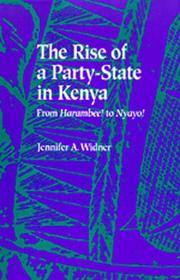| Listing 1 - 3 of 3 |
Sort by
|
Book
ISBN: 9783110576931 3110576937 Year: 2019 Publisher: Berlin de Gruyter
Abstract | Keywords | Export | Availability | Bookmark
 Loading...
Loading...Choose an application
- Reference Manager
- EndNote
- RefWorks (Direct export to RefWorks)
Kaduo language --- Language and languages --- Linguistics --- Gazhuo language --- Kado language (Loloish) --- Kadu language (Loloish) --- Katso language --- Kazhuo language --- Loloish languages --- Linguistic science --- Science of language --- Grammar --- Grammar, Polyglot --- Polyglot grammar --- Grammars --- Asian languages --- Khatso language
Book
ISBN: 9004378243 9004378227 Year: 2018 Publisher: Leiden, Boston: Brill,
Abstract | Keywords | Export | Availability | Bookmark
 Loading...
Loading...Choose an application
- Reference Manager
- EndNote
- RefWorks (Direct export to RefWorks)
Beṭṭa Kurumba is a Dravidian language spoken in the Nilgiri and Waynad Hills of India. Annotated Texts in Beṭṭa Kurumba presents folktales and dialogues in this language, together with a grammatical sketch and a glossary. These interlinearised texts provide rich data for linguistic analysis, as well as some of the earliest published cultural information about a highly understudied ethnic group. The cultural information is presented, for the most part, by the Beṭṭa Kurumbas themselves, who speak in their own native language about aspects of their lifestyle, spiritual beliefs, and social organization into clans.
Kurumba language --- Legends --- Kurumba (Indic people) --- Dialogues, Karumba. --- Alemāri Kuruba (Indic people) --- Kadu Kurumba (Indic people) --- Korambar (Indic people) --- Kuramwari (Indic people) --- Kuruba (Indic people) --- Kurumar (Indic people) --- Kurumban (Indic people) --- Kurumbar (Indic people) --- Kurumbas --- Kurumwari (Indic people) --- Mullukurumba (Indic people) --- Ethnology --- Tibeto-Burman peoples --- Cholanaickan (Indic people) --- Folk tales --- Traditions --- Urban legends --- Folklore --- Deforo language --- Foulse language --- Fulse language --- Koromfe language --- Kouroumba language --- Kurumfe language --- Lilse language --- Gur languages

ISBN: 0520076249 0520911857 0585274797 9780520911857 9780585274799 9780520076242 Year: 1992 Publisher: Berkeley, California : University of California Press,
Abstract | Keywords | Export | Availability | Bookmark
 Loading...
Loading...Choose an application
- Reference Manager
- EndNote
- RefWorks (Direct export to RefWorks)
Although Kenya is often considered an African success story, its political climate became increasingly repressive under its second president, Daniel arap Moi. Widner charts the transformation of the Kenya African National Union (KANU) from a weak, loosely organized political party under Jomo Kenyatta into an arm of the president's office, with "watchdog" youth wings and strong surveillance and control functions, under Moi. She suggests that single-party systems have an inherent tendency to become "party-states," or single-party regimes in which the head of state uses the party as a means of control. The speed and extent of these changes depend on the countervailing power of independent interest groups, such as business associations, farmers, or professionals. Widner's study offers important insights into the dynamics of party systems in Africa.
Regions & Countries - Africa --- History & Archaeology --- Kenya African National Union. --- Kenya --- Politics and government --- KANU --- K.A.N.U. --- Kīnyā --- Kenia --- Kenii︠a︡ --- Chenia --- Cenia --- Government of Kenya --- Republic of Kenya --- GOK --- Jamhuri ya Kenya --- Kenya Colony and Protectorate --- Colony and Protectorate of Kenya --- ケニア --- קניה --- Ḳenyah --- Quênia --- كينيا --- Kīniyā --- 肯尼亚 --- Kenniya --- Кения --- East Africa Protectorate --- HISTORY / Africa / General. --- 20th century african history. --- 20th century kenyan history. --- autocrat. --- corruption. --- daniel arap moi. --- dictator. --- governmental control. --- head of state. --- human rights abuses. --- human rights. --- jomo kenyatta. --- kadu. --- kanu. --- kenya african national union. --- kenya. --- kenyan african democratic union. --- kenyan history. --- kenyan politics. --- party states. --- political climate. --- president of kenya. --- regimes. --- repressive government. --- single party system. --- surveillance. --- watchdog.
| Listing 1 - 3 of 3 |
Sort by
|

 Search
Search Feedback
Feedback About
About Help
Help News
News